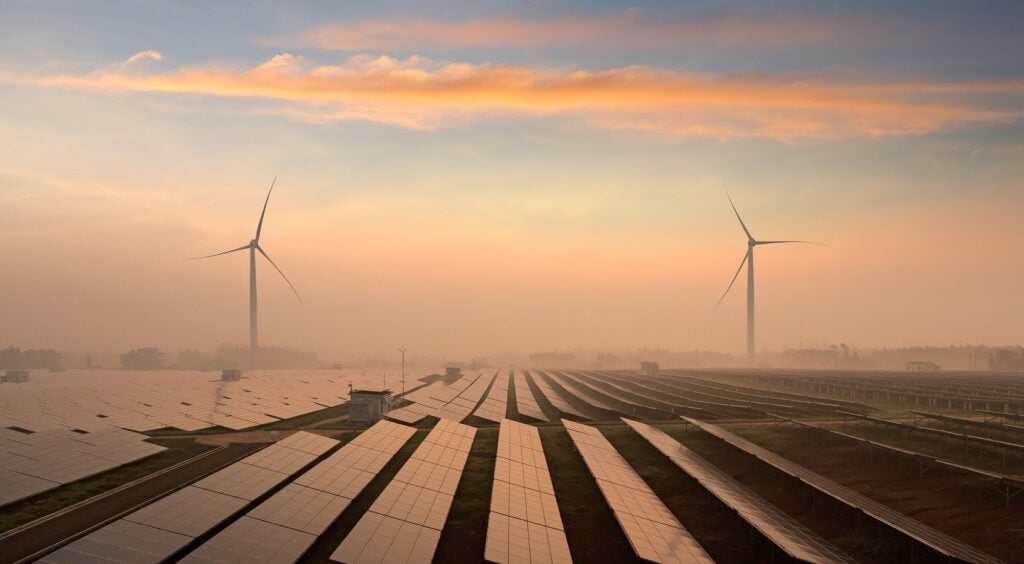Centrica has pitched its future vision of the UK’s business energy market, suggesting that greater distributed power could save the economy billions, create thousands of jobs and help boost productivity.
The power giant has published a new report dubbed ‘Distributed Energy: Powering Britain’s Economic Future’, which explores the rise of decentralised and digitised power solutions.
It argues that if just three key sectors of the UK economy – industry, health and hospitality – embraced the new energy model they could save nearly £900 million in energy costs each year, support roughly 260,000 additional jobs, provide an additional £18.5 billion to the economy’s value and offer a timely boost of 1.5% to productivity.
Those three sectors provide more than a quarter (27%) of the UK’s total gross value added (GVA) and are responsible for 31% of total UK employment. Centrica said only half of companies in these sectors would need to change their energy consumption in order to realise those benefits for the country.
Centrica’s model places on-site generation at its heart, incorporating solar PV, combined heat and power and other technologies to move generation closer to the point of consumption. Battery storage is also explicitly mentioned, as are advanced metering, data analytics and technologies capable of placing more control in consumer hands.
It also places a significant importance on additional revenue streams used to support investment. On top of energy cost savings, businesses can now participate in grid flexibility tenders and other procurement markets to make investments more feasible.
Centrica included a number of case studies in its report and argued that differing revenue streams had contributed to “tangible cost reduction benefits” that had justified the investments made by businesses in this field.
The report opens with a foreword from Jorge Pikunic, managing director at Centrica’s distributed energy and power division, pitching the creation of a “new sector in the economy” encompassing energy, technology and services to “establish the UK as a world leader in developing and managing the energy systems of the future”.
Pikunic also revealed that the company had made the decision to invest £700 million in its distributed power division by 2020 in an additional vote of confidence.
Ultimately Centrica said it intends to create a “new chapter” in energy use, one defined by decentralisation, digitisation and customer control. This transition would embrace the “changing energy landscape” and deliver large and wide-ranging benefits to the entire UK economy.
But the company has stressed it would not only require buy-in from industry – which, according to Centrica, must now regard energy not as a fixed-cost commodity but as a “source of competitive advantage – but also by the government.
“This report shines a light on the scale of the opportunity for distributed energy technologies to contribute to the aims of the government’s Industrial Strategy, reducing public sector costs and creating new opportunities for growth in the UK.
“The challenge now is for industry and Government to make this a reality. Together, I believe we can create a new sector for the economy that encompasses energy services, technology, and innovation. I also believe there to be significant export potential that could allow the UK to establish itself as a world leader in developing and managing the energy system of the future,” Pikunic added.
The report is timely, coming between the publication of the government’s Clean Growth Strategy and the forthcoming Industrial Strategy. A whitepaper on the latter is expected to be unveiled by business secretary Greg Clarke on Monday (27 November 2017).
This week’s Budget was widely criticised for failing to address the energy market and clean power in general. Although increased support for electric vehicles was unveiled, it was also announced that the government was to block all new levies in support of low carbon power until 2025 in a bid to protect consumers from increased bills.
The decision was announced just hours after the Public Accounts Committee condemned the government over its handling of the Hinkley Point C contract. Top-up costs have spiralled from an initial estimate of £6 billion to around £30 billion, adding an expected £10 – £15 to each consumer bill for 35 years.





